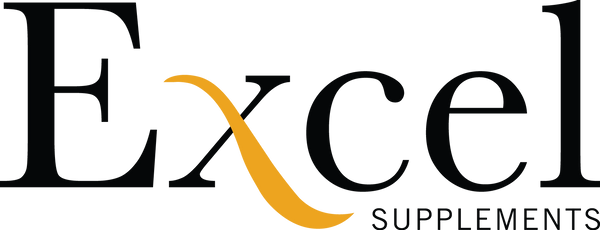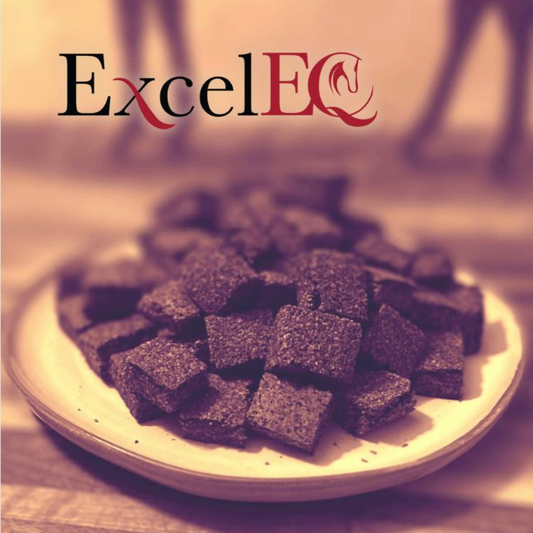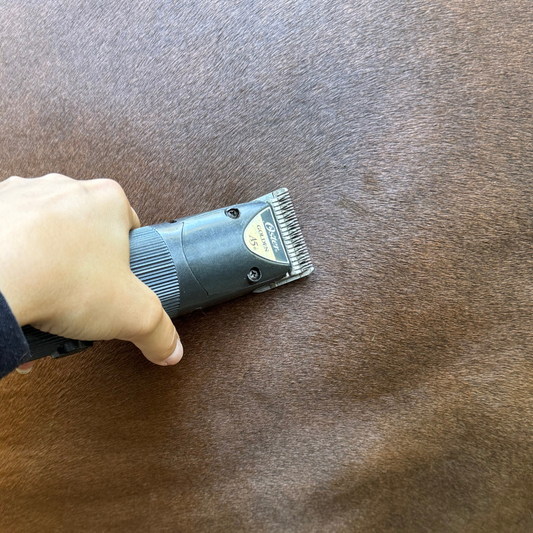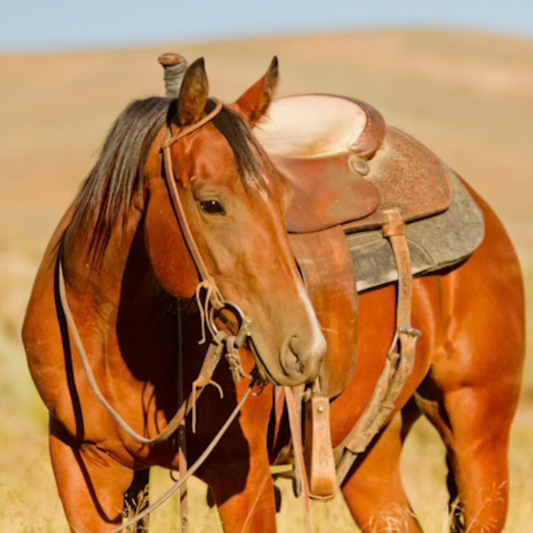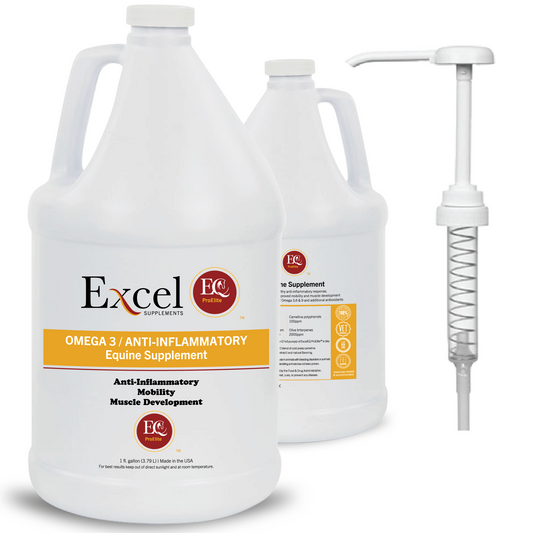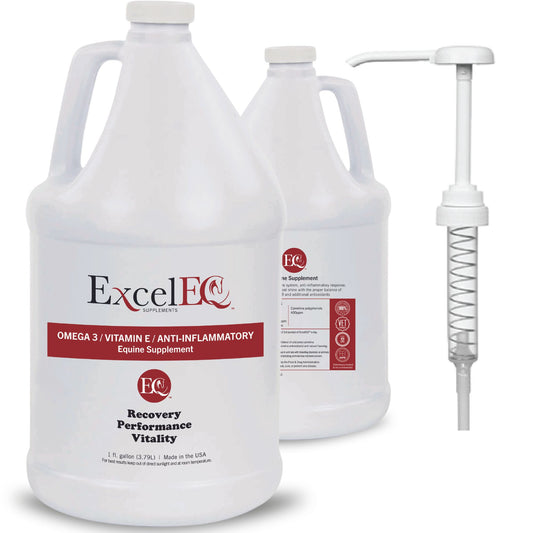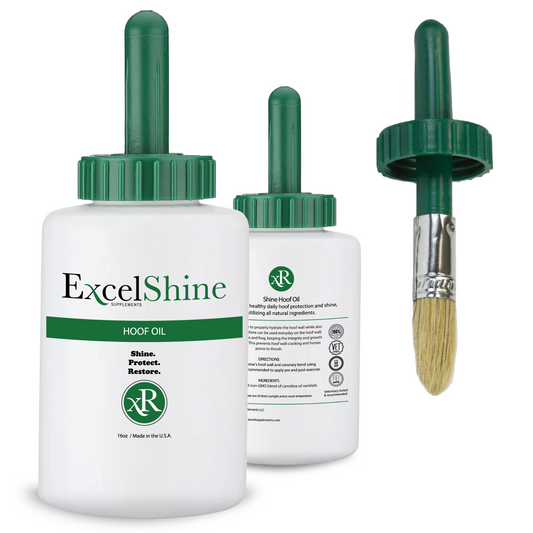How to Build Your Horse a Balanced Diet
Share
Creating a Balanced Diet for Your Horse
Creating a balanced diet for your horse is essential for their health and performance. A well-balanced diet ensures your horse receives the right nutrients in the right amounts. Here's how to achieve that balance effectively.
Understanding Your Horse’s Nutritional Needs
To create a balanced diet, it's crucial to understand the major nutrients your horse requires. Here’s a breakdown of these key nutrients:
- Digestible Energy (Mcal/day)
- Crude Protein (kg/day)
- Calcium (g/day)
- Phosphorus (g/day)
- Sodium/Potassium (g/day)
- Trace Minerals: Copper, Zinc, and Iron (mg/day)
- Vitamins: A, D, and E (IU/day)
- Thiamine (mg/day)
Knowing these units and their recommended amounts is the first step toward crafting a balanced diet for your horse.
Keep in mind- the guaranteed analysis listed on a feed tag only tells you the minimum or maximum amount of each nutrient, not the quality or bioavailability. For example, crude protein might be listed, but that doesn’t reveal whether the protein source is easily digestible. This is why looking beyond the tag and understanding the actual nutrient sources is critical to your horse’s health. Read more about guaranteed analysis here.
Tailoring the Diet to Your Horse’s Age, Size, and Workload
Your horse's diet should be tailored based on their age, size, and workload. Different stages of a horse’s life and varying activity levels require specific nutritional adjustments.
Age and Size Considerations
- Foals and Growing Horses: Require higher nutrient levels to support growth.
- Lactating Mares: Need additional nutrients to support milk production.
- Mature Horses: Nutritional needs vary based on their activity level.
Workload and Energy Needs
It’s not just about calories—it’s about where they come from. High-quality grains provide consistent energy and nutrients, while cheaper, inconsistent mixes may contain fillers, hulls, or by-products that add bulk but little nutritional value. Feeding poor-quality grain can actually increase stress on your horse’s digestive system and lead to performance issues over time. The energy requirements of a horse depend on their workload. For instance:
- A 1,100-pound mature horse in moderate work needs approximately 24.6 Megacalories per day.
- A 1,100-pound mature horse at rest requires around 16.4 Megacalories daily.
Assessing your horse's workload is crucial to determining their nutritional needs accurately.
Determining Your Horse's Workload
Understanding your horse’s workload helps in formulating a balanced diet. Use the following guidelines to assess their workload:
- Light Work: Includes activities like light riding or occasional exercise.
- Moderate Work: Involves regular riding or training.
- Intense Work: Includes competitive or strenuous activities.

Recommended Nutritional Requirements for Horses
To ensure your horse gets the right nutrition, refer to reliable sources for recommended dietary requirements. Always consult with your veterinarian before making dietary changes, as individual health conditions may affect nutritional needs.
Reliable Nutritional Information
For detailed nutritional guidelines, consult resources such as:
- Oklahoma State University: Provides comprehensive information on horse nutrition.
- American Association of Equine Practitioners: Offers valuable insights into equine health and diet.
Evaluating Your Horse’s Current Diet
Reviewing your horse's current feeding regimen is essential. Many horse owners seek to adjust their Omega and Vitamin E supplements based on their horse’s needs. Comparing your current diet with recommended nutritional guidelines can highlight areas needing improvement.
Evaluating what you’re feeding can also save you money. Many horse owners overspend by buying multiple supplements or feeds that duplicate nutrients. By carefully reading feed tags and understanding the actual nutrients provided, you can streamline your feeding program, cut unnecessary costs, and still give your horse exactly what they need. Read more about how to save money on your feed bill here.
Creating a Diet Comparison Chart
Construct a chart comparing your current feeding practices with recommended dietary needs. This visual tool helps identify nutrient gaps and areas for adjustment.
Hay Quality Matters
When considering your horses diet- don't forget- hay isn’t just filler! Forage is the foundation of your horses diet. Poor-quality hay can be low in protein, energy, and vitamins, which creates nutritional gaps and adds stress to the body. Checking leafiness, color, smell, and even running a forage analysis ensures your hay supports—not hinders—your horse’s health. Read more about hay quality here.
Supplements to Achieve a Balanced Diet
Adding supplements can help fill in nutritional gaps. For example:
- ExcelEQ: Enhances Digestible Energy and Vitamin E levels.
- Mineral Blocks: Provide essential minerals your horse might be missing.
Always consult with your veterinarian before introducing new supplements to ensure they are appropriate for your horse’s specific needs.
Enhance Your Horse’s Health with ExcelEQ
Support your horse's health and performance with ExcelEQ, our premier equine wellness supplement. Ideal for horses with moderate to low activity, ExcelEQ helps maintain optimal health with just 2 pumps daily. Ensure your horse feels their best and performs at their peak with our top-quality formula.
Sources:
- Parker, Rick. Equine Science (Third Edition). Clifton Park, Delmar Cengage Learning, 2008
